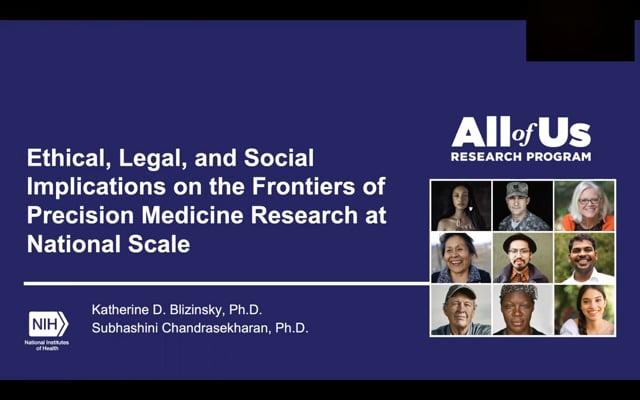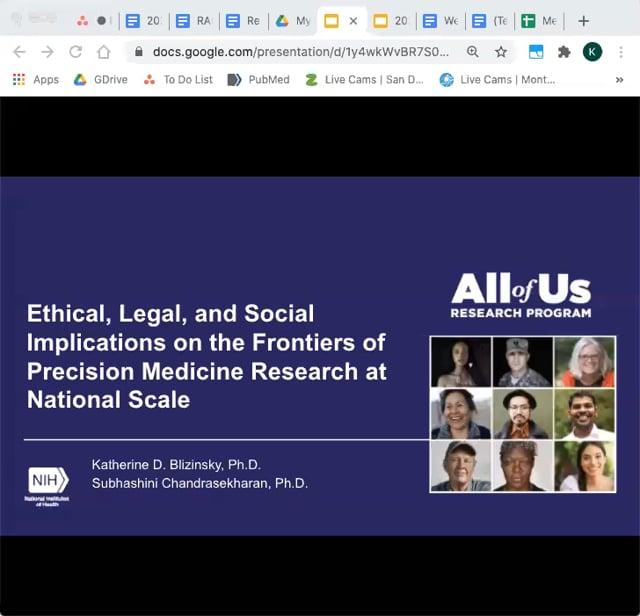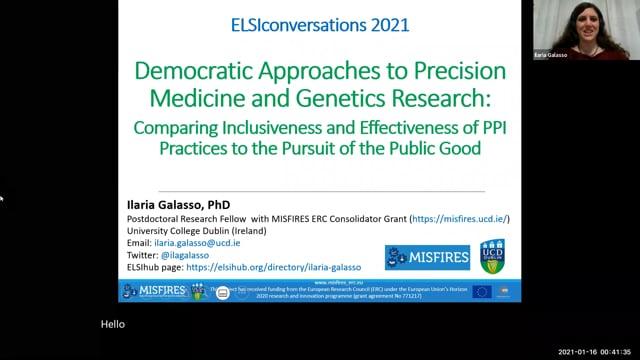Racial and Ethnic Classification in the Clinic: Is it Just?
Natalie Pino, BA - National Human Genome Research Institute
ELSIconversations - March 26, 2021
The United States has a long history of institutionally classifying people by racial and ethnic (R/E) categories. The use of this information in healthcare settings is often unexamined, leaving questions about its overall purpose. Given the sensitive nature of R/E classification and its historical abuses, we assert that a formal ethical evaluation is needed to determine whether this practice is justified for the purpose of improving the delivery of healthcare, and if so, on what grounds. Following the framework established by Childress et al. (2002), which states that a justified public health practice is Effective, Proportional, Necessary, Least infringing, and Public Justified, we conducted a scoping review in PubMed to identify articles about the delivery of health care that involve R/E classification of study subjects (N=200), to determine whether there is evidence available to make an evaluation for each of Childress’s justificatory conditions. We found that collecting R/E can serve different purposes with unique benefits and harms that must be evaluated independently. While describing health statistics was the most popular function of R/E classification in studies in our literature review (N=121), there is a lack of clarity about the efficacy, proportionality, necessity, infringement, or public understanding of the practice. Overall, we found there is little evidence in the literature on which to base a formal ethical evaluation for the use of R/E classification in clinical settings. Further inquiry is required to generate evidence that would enable a formal evaluation of whether this ubiquitous practice is justified.
Tags
Videos in Series
-
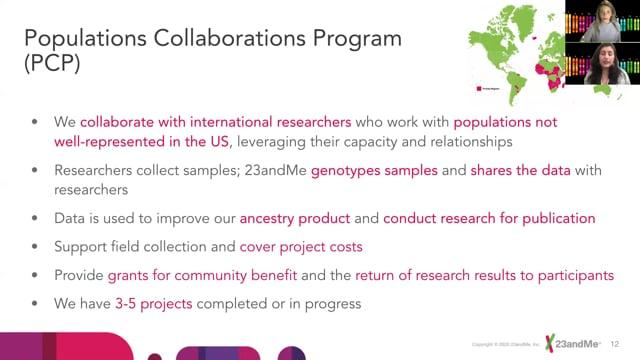
ELSIconversations 1: ELSIcon2020 - A Prospectus on Ethical Issues in the Context of Collaborations Between Academic and Non-academic Institutions on Genetics Research
-
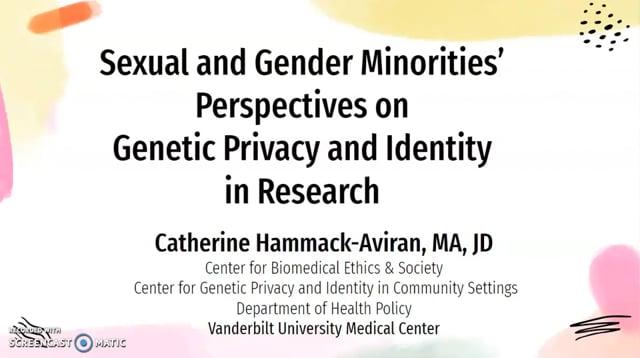
ELSIconversations 1: ELSIcon2020 - Sexual and Gender Minorities’ Perspectives on Genetic Privacy and Identity in Research
-
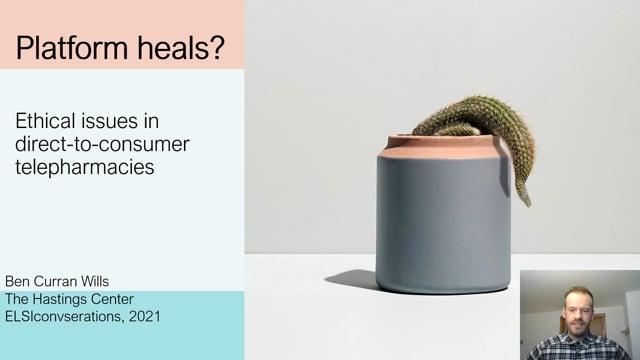
ELSIconversations 1: ELSIcon2020 - Platform Heals? Ethical Issues in Direct-to-consumer Telepharmacies
-
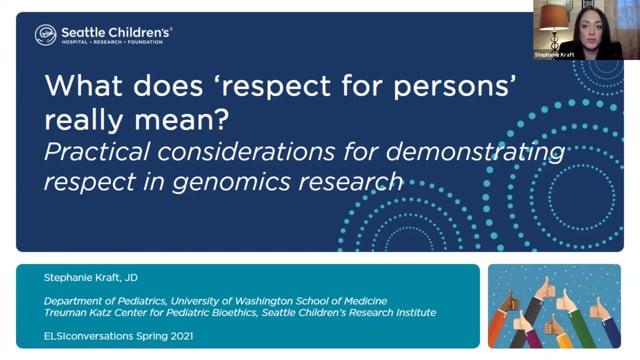
ELSIconversations 1: ELSIcon2020 - What does ‘respect for persons’ really mean? Practical considerations for demonstrating respect in genomics research
-
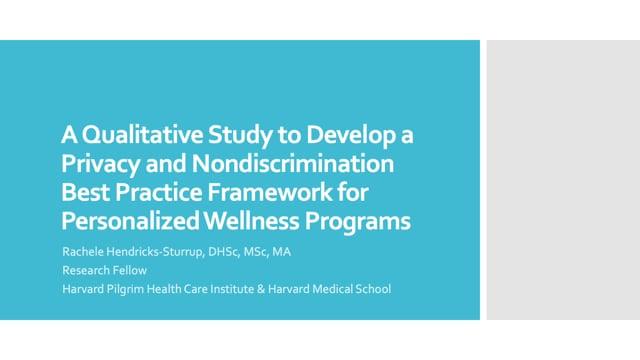
ELSIconversations 1: ELSIcon2020 - A Qualitative Study to Develop a Privacy and Nondiscrimination Best Practice Framework for Personalized Wellness Programs
-
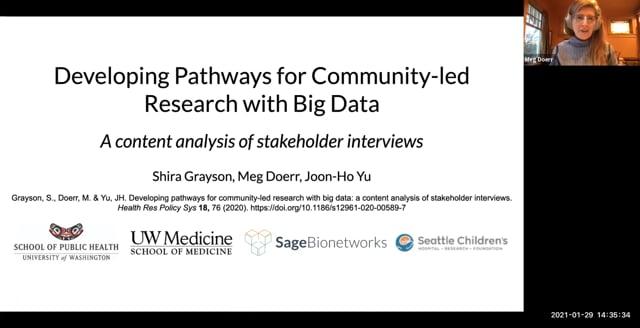
ELSIconversations 1: ELSIcon2020 - Developing Pathways for Community-led Research with Big Data: A Content Analysis of Stakeholder Interviews
-
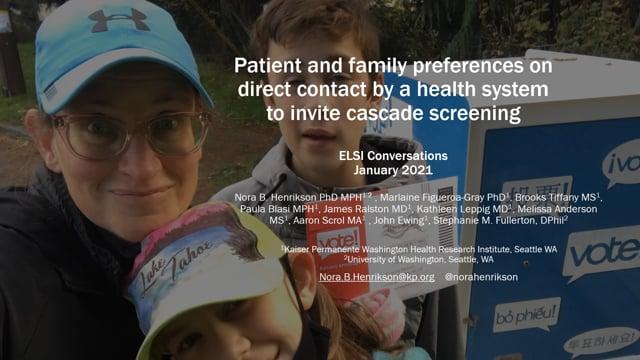
ELSIconversations 1: ELSIcon2020 - Patient and family preferences on direct contact by a health system to invite cascade screening
-
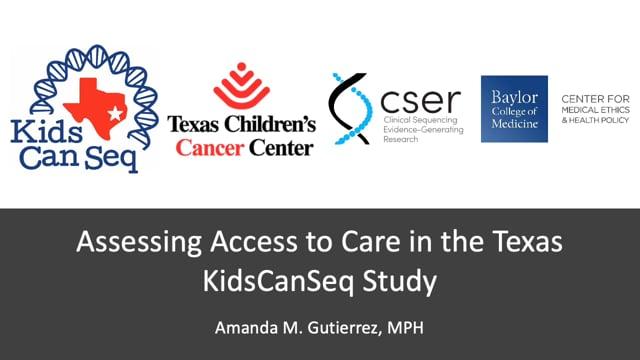
ELSIconversations 1: ELSIcon2020 - Part 2. Assessing Access to Care in the Clinical Sequencing Evidence-Generating Research Consortium: Contexts and Challenges
-
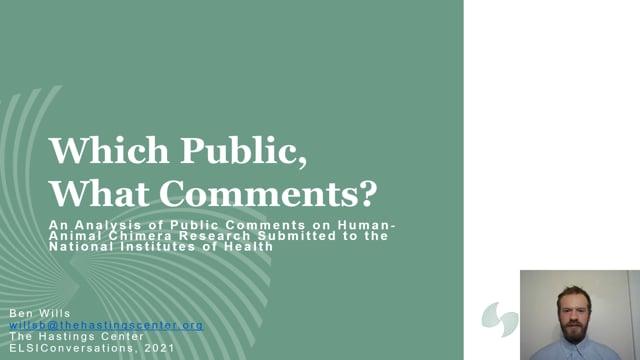
ELSIconversations 1: ELSIcon2020 - Which Public, What Comments? An Analysis of Public Comments on Human-Animal Chimera Research Submitted to the National Institutes of Health
-
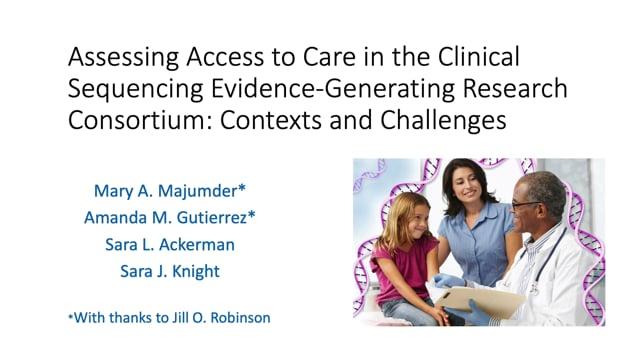
ELSIconversations 1: ELSIcon2020 - Part 1. Assessing Access to Care in the Clinical Sequencing Evidence-Generating Research Consortium: Contexts and Challenges
-
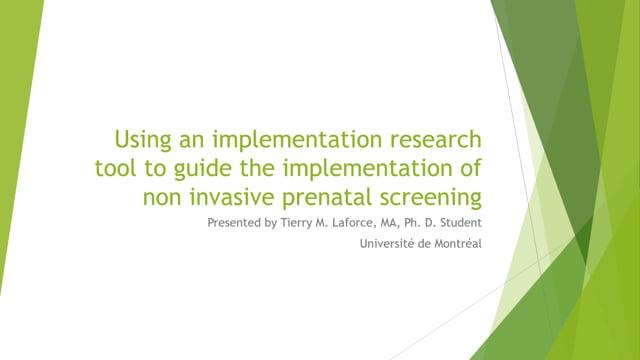
ELSIconversations 1: ELSIcon2020 - Using an implementation research tool to guide the implementation of non-invasive prenatal screening
-
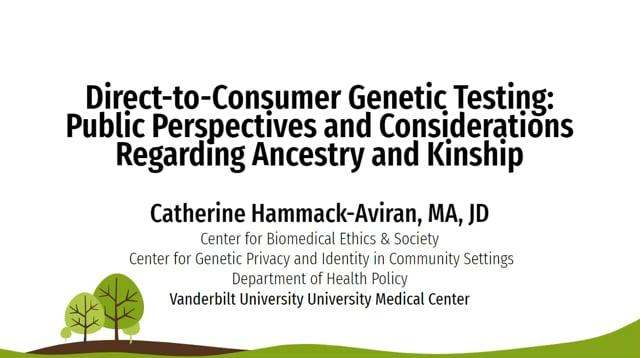
ELSIconversations 1: ELSIcon2020 - Direct-to-Consumer Genetic Testing: Public Perspectives and Considerations Regarding Ancestry and Kinship
-
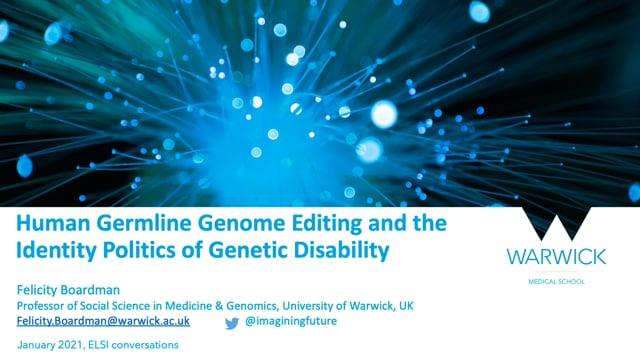
ELSIconversations 1: ELSIcon2020 - Human Germline Genome Editing and the Identity Politics of Genetic Disability
-
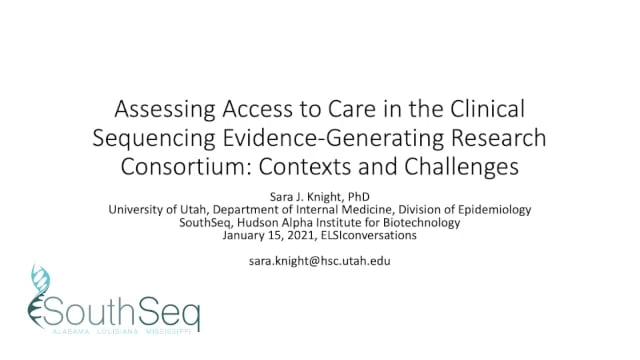
ELSIconversations 1: ELSIcon2020 - Part 4. Assessing Access to Care in the Clinical Sequencing Evidence-Generating Research Consortium: Contexts and Challenges
-
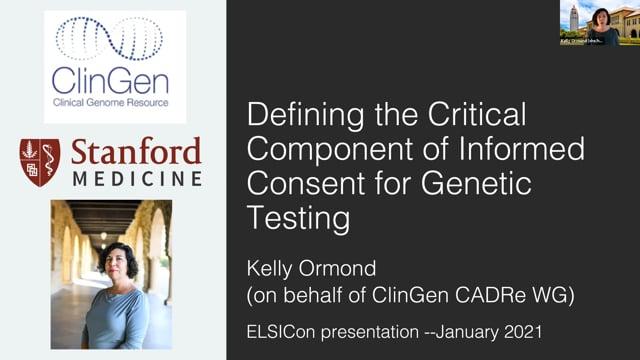
ELSIconversations 1: ELSIcon2020 - Defining the Critical Components of Informed Consent for Genetic Testing
-
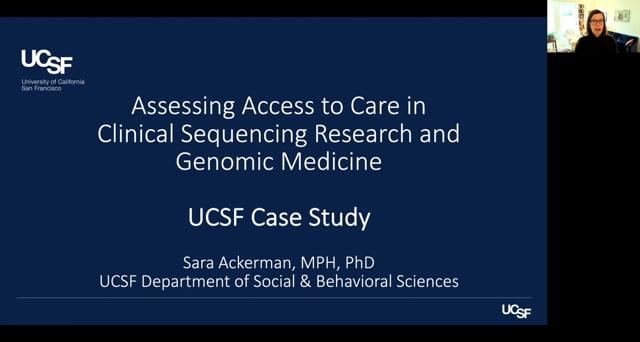
ELSIconversations 1: ELSIcon2020 - Part 3. Assessing Access to Care in the Clinical Sequencing Evidence-Generating Research Consortium: Contexts and Challenges

